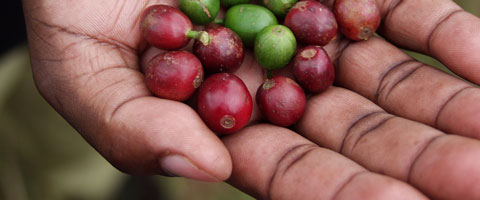Growing an ecologically responsible coffee plant is possible. If we move away from the sun grown high input models that dominates the market today, we can create a semi self-maintaining system that can produce a better cup as well as diversifying a farmers source of income. Models based off polyculture agroforestry systems provides a biodiverse system that can both benefit the grower and the soil. A modified wild forest system which is “The most basic form of management beyond pure extraction, to modify the forest environment to favor the production of a valuable product.”( Belcher, Michon, Angelsen, Perez, Asbjornsen 3) would make and ideal system for coffee. Coffee would be interplanted with tropical hardwoods like mahogany, a nitrogen fixer, spice trees like cinnamon and fruit trees like mangos, cacao, papaya, guava, and durian. These provide shade as well as contributing to a farmers health and economic growth. Promoting nutrient accumulating and nitrogen fixing ground covers like legumes, fennel, garlic chives, and stinging nettle both protects and builds soils. though shade grown coffee is likely to have a lower yield, demand more manual labor due to inaccessibility of fossil fuel driven machinery, premote habitats for mammal pests, and a lower profit from coffee; the benefits far out way that. The diversification of market crops lowers the dependence on a single crop for an income, drop inputs of fertilizers, promotes soil health, prevents erosion, and in most cases provides a better cup of coffee. Systems like these coupled with cooperative processing and distribution facilities provide a brighter future for coffee in the shade.
Credits:
Photo Credit : http://www.rainforest-alliance.org/sites/default/files/site-images/education/images/shade_grown1.jpg
Belcher, Brian, Genevieve Michon, Arild Angelsen, Manuel Ruiz Pérez, and Heidi Asbjornsen. 2005. “The Socioeconomic Conditions Determining the Development, Persistence, and Decline of Forest Garden Systems.” Economic Botany 59 (3): 245–53.

